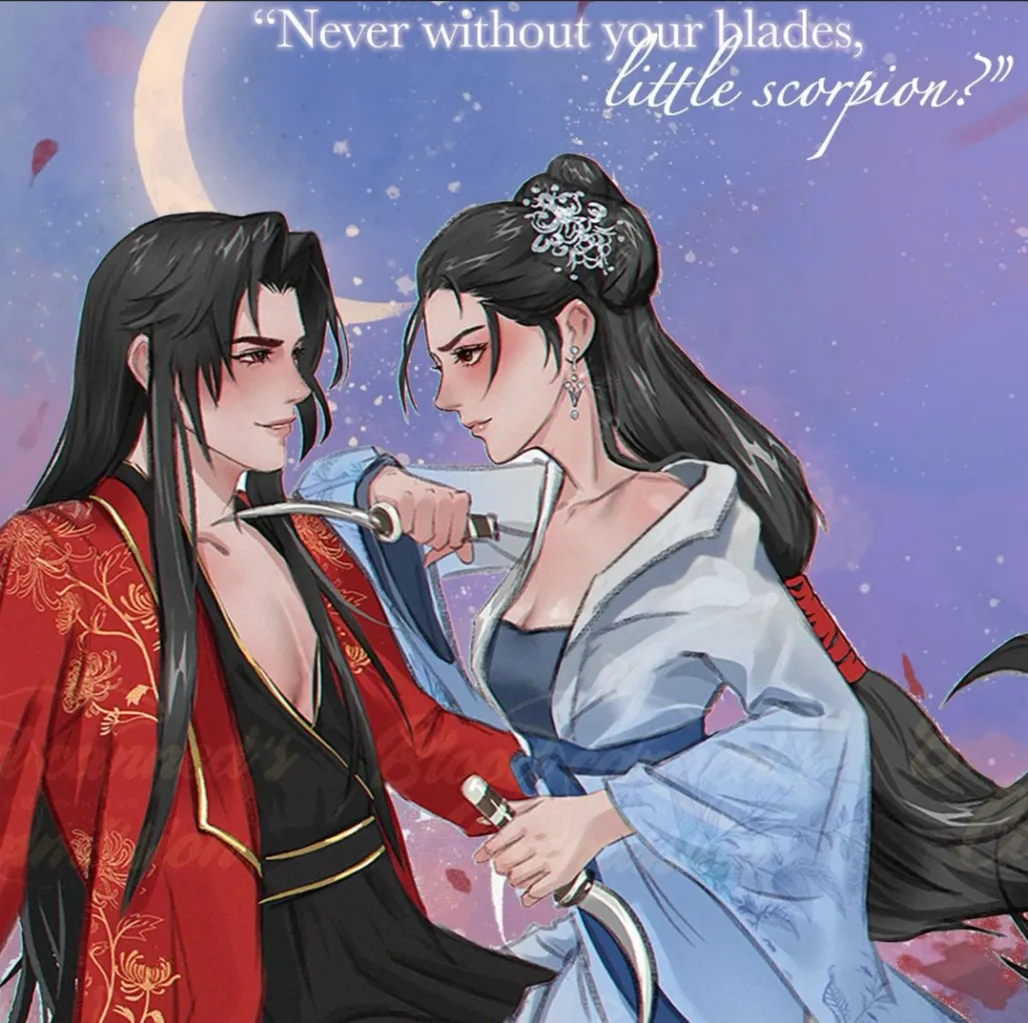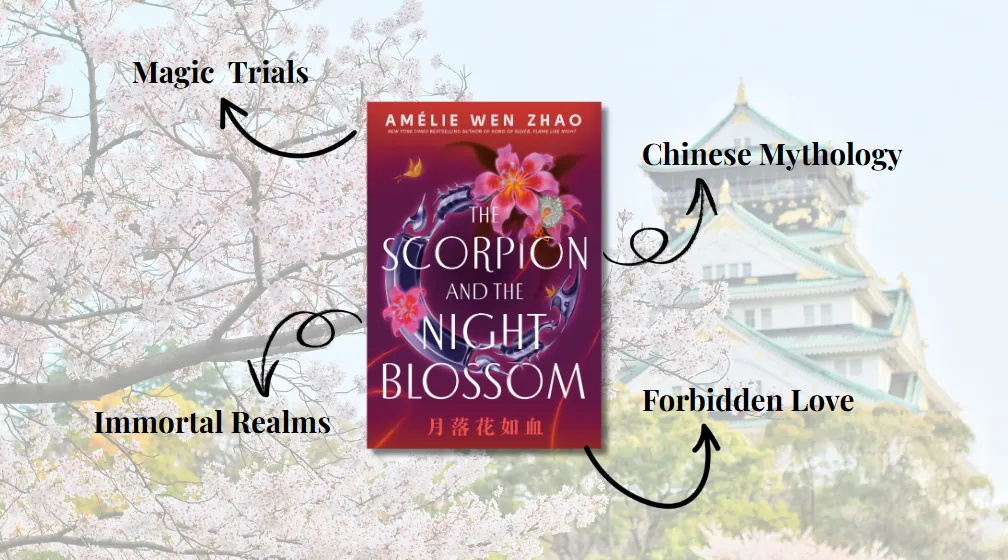
The Scorpion and the Night Blossom throws us into a dark, celestial world inspired by rich Chinese mythology, where demons feast on mortals and hope is scarce. It doesn’t exactly reinvent the “deadly trials with romance” formula—but you know what? That’s okay. Sometimes familiarity is comforting, especially when it’s wrapped in poetic prose and gorgeous imagery.
Imagine floating mountains, rivers of stars, shadow cranes soaring over cherry blossom fields, and swords named Fleet and Shield slicing through the air. Yeah, it’s that kind of visual feast. If you’re a fan of C-dramas or fantasy aesthetics that feel like paintings come to life, you’ll probably enjoy the atmosphere alone.

The Plot
The Plot
Our heroine, An’ying, is trying to survive in a world teetering on the edge of ruin. Her family has already been shattered by the war between the Kingdom of Night and the Kingdom of Rivers. Her father? Killed in a demon attack. Her mother? Barely clinging to life. And she’s left caring for a baby sister.
To save her mother, An’ying sets her sights on the Immortality Trials. It's a brutal competition where mortals battle for a pill that grants eternal life. She believes winning it might be the miracle her family needs. But here’s the thing: the trials, despite being central to the plot, often take a backseat. They’re mentioned constantly, sure, but when it comes to execution? Pretty anticlimactic. Most of An’ying’s victories don’t feel like they come from her own strength, and that undercuts some of the tension.
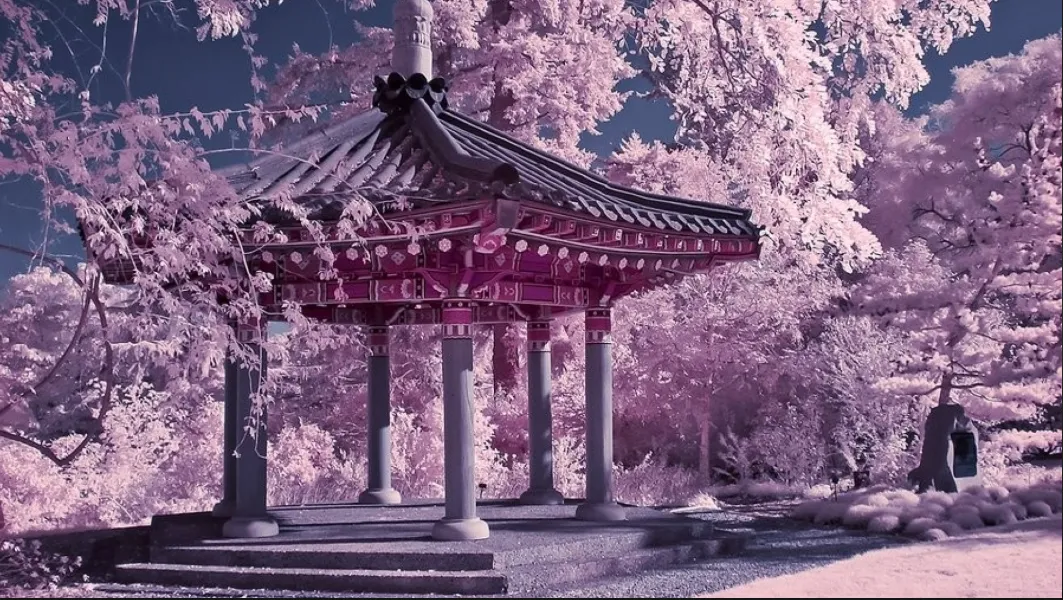
Realms of Light and Shadow
One of the book’s biggest flexes is its vivid, layered worldbuilding. Zhao doesn’t just create a setting—she builds an entire ecosystem of magic, danger, and power struggles across three realms:
- The Kingdom of Rivers - The Mortal World teeters on the edge of collapse, plagued by soul-hungry demons and drowning in shadow.
- The Kingdom of Sky - The Celestial Realm floats high above, serene and warded, where immortals rule and mortals rarely tread.
- The Kingdom of Night - The Demon Domain is pure nightmare fuel—a dark, dangerous expanse crawling with monsters of every rank and hunger.
Each realm has its own vibe, its own logic, and its own role to play in the story’s high-stakes chaos.
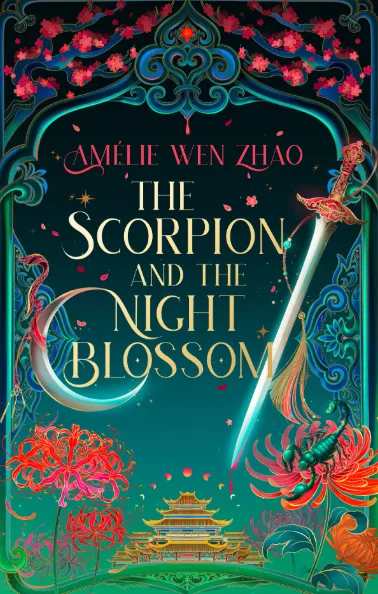

Our Heroine: An’ying
Our Heroine: An’ying
As far as protagonists go, An’ying is easy to root for. She’s smart, determined, and fiercely loyal. She doesn’t waste time with petty drama, which I genuinely appreciated. She’s on a mission, and she doesn’t let herself get distracted. That’s not something you always get in YA fantasy, and it was refreshing.
But… while I respected her, I didn’t feel as connected to her as I did to someone else.

Yù’chén: The Real MVP
Enter Yù’chén. Half-demon. Deadly. Cocky. And surprisingly funny. At first, he comes off as just another arrogant combat god—but slowly, layer by layer, you realize there’s so much more to him. He’s a broken soul wrapped in banter and bravado, and honestly? I adored him.
There’s one early scene where An’ying attacks him, thinking he’s a demon, and the dynamic that follows is charged and entertaining. But what really struck me was how selflessly he protects her—again and again. He risks everything for her and her sister, and still, she treats him like a monster.
See, I get it. Her trauma is valid. Her parents were killed by demons. But knowing that doesn’t make it any easier to watch her push him away when all he does is care. It was painful. Frustrating. And yeah, I might’ve wanted to shake her a few times.
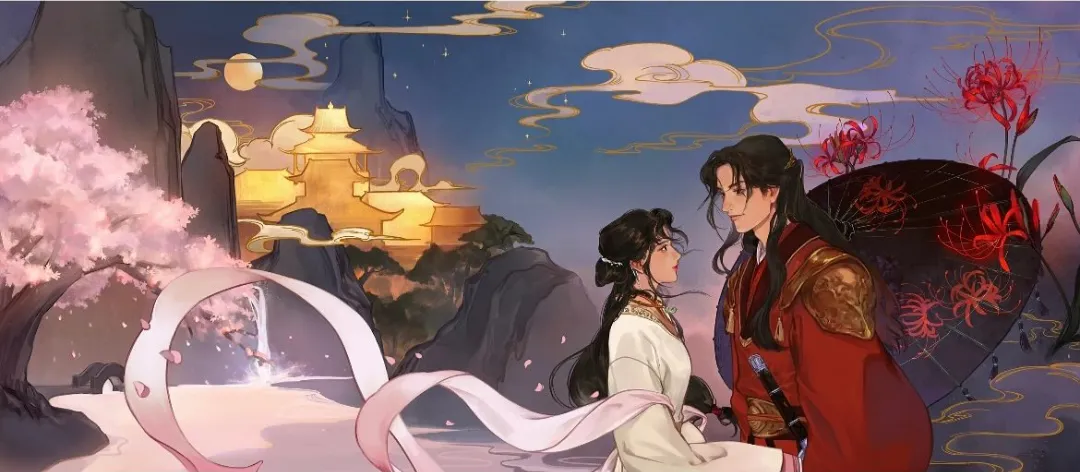

The Love Triangle Situation
The Love Triangle Situation
So yes—there’s a love triangle. Or at least, the beginnings of one. But thankfully, the triangle isn’t too in-your-face. It’s subtle and not overly dramatic (though it is kind of obvious who’s the frontrunner). That said, if book two leans too hard into the triangle drama, I might actually lose it. Because let’s be real—Yù’chén deserves better.
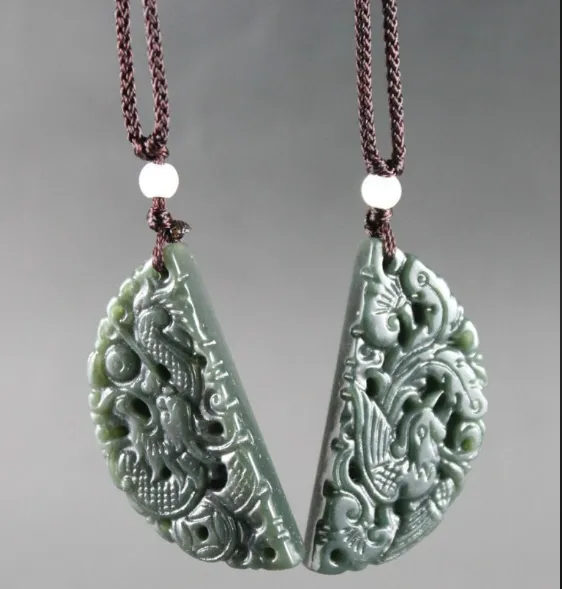

A Tale of Two Halves
A Tale of Two Halves
The plot felt predictable, the world familiar, and the writing sometimes read like it was trying too hard to be poetic. There were even moments where the prose felt a bit stiff, if I’m being honest. But I kept going because the pace was snappy and it was easy to read.
Then I hit the 70% mark.
Suddenly, everything started clicking. The themes of fate and free will, light and darkness, all sharpened. The emotional stakes skyrocketed. There were plot twists. Real, gripping ones. It was like the story woke up and realized it had potential. And just like that, I cared. Deeply. So many moments where I was like "😭😭💔"

Final Verdict
Final Verdict
Honestly, this is one of those books that falls somewhere between a 3 and a 4, depending on what chapter you’re reading. I went with a 4 star at the end though. It’s flawed, no doubt. It leans hard on familiar tropes. It doesn’t always deliver on the drama it promises. By the end, I was emotionally invested. If only that momentum had been there all along. The foundation has been laid for a possibly great conclusion for the next book in the duology. I need answers.
The vibes are great. The characters (well, Yù’chén) are compelling. And the emotional payoff, once it finally arrives, hits hard. So yeah—I’ll definitely pick up the sequel. I need answers.
If you’re in the mood for a fast-paced romantasy with deadly trials, celestial beauty, and a soft spot for broken boys with swords, give this a shot. Just don’t expect your mind to be blown. Go in for the vibes, stay for Yù’chén, and be patient with the plot.
Would I recommend it? If you’re craving something easy to read with solid aesthetics and a little bit of heart—sure. Just don’t go in expecting a masterpiece. This one's all about the journey, not the destination. And sometimes, that’s enough.
